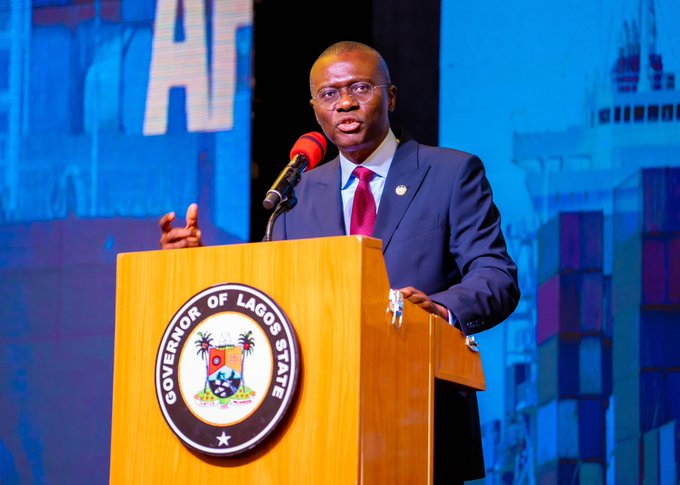The Lagos State Government has proposed a transformative new law aimed at drastically reducing delays in the adjudication of civil and criminal cases, a step long awaited by those frustrated with the pace of Nigeria’s judiciary. The proposal, which is currently before the Lagos State House of Assembly, seeks to ensure faster resolutions for legal disputes by enforcing strict timelines and tackling long-standing inefficiencies.
Lagos State’s Attorney General and Commissioner for Justice, Lawal Pedro (SAN), revealed details of the initiative, which promises a substantial shift in the justice system. According to Pedro, the proposed Administration of Civil Justice Law (ACJL) aims to reduce the time it takes to conclude civil trials to just 18 to 24 months, and resolve tenancy matters between three to six months. This will be a major improvement compared to the current pace of legal proceedings in the state, which often spans several years.
Speaking to reporters, Pedro expressed his concerns about the long delays that have plagued the judiciary for decades. He pointed out that the state’s courts currently face a backlog of cases, some of which have been pending for over a decade, with no solution in sight. “Some litigants never live to see the conclusion of their cases due to the long wait,” Pedro said, highlighting the urgency of reforming the system.
He added that the criminal justice system is also in for a shakeup. One of the central features of the proposal is the Lagos State Criminal Information System (LSCIS), which will introduce a centralized database to track criminal cases more effectively. The system will store critical data, including photos and biometrics of accused individuals, helping authorities manage suspects and inmates more efficiently.
The importance of timely justice cannot be overstated, Pedro emphasized. Delayed decisions often result in the degradation of evidence, leaving victims, witnesses, and even accused individuals disadvantaged by prolonged trials. “Justice delayed is justice denied,” he reiterated, noting that prompt resolution of legal matters is not only a right but a necessity for upholding public trust in the judicial process.
Pedro’s comments echo a broader sentiment of frustration shared by many Nigerians. Even in federal courts, cases can drag on for years, and it is not uncommon for trials to spill over into decades, especially in higher appellate courts. As the Attorney General explained, while the federal and state governments have made efforts to address the economic welfare of judicial officers, little has been done to reform the judicial institution itself.
With the new legislation, Lagos State aims to streamline the entire judicial process by implementing clear timelines for each phase of litigation. In civil matters, all cases will be expected to follow well-defined procedural stages, with each stage requiring swift action from all parties involved. The law will also curb practices that cause unnecessary delays, including frivolous applications and stalling tactics frequently used by legal practitioners. These practices often prolong the time it takes to bring cases to trial or enforce judgments, leaving litigants in limbo.
“Delays in the justice system are not just an inconvenience; they are a crisis,” Pedro noted. “If the law cannot provide timely relief, it fails in its duty to deliver justice.” For this reason, the proposed ACJL is designed to avoid the pitfalls of previous judicial reforms that promised speed but failed to deliver lasting results.
Another significant feature of the proposed reforms is the increased regulation of judicial officers’ work ethic. Judges, Pedro remarked, should hold themselves accountable for punctuality and professionalism. A recent review of judicial practices highlighted widespread absenteeism among some judges and long periods of idleness between cases. To remedy this, Pedro has called for strict adherence to work schedules and emphasized that judges who miss their court sessions without valid reasons should face disciplinary action.
For the proposal to succeed, Lagos State officials are calling for strict enforcement of the law once it is enacted. Pedro warned that any laxity in implementing the new system would defeat its purpose. He pointed out that the 1999 Constitution of Nigeria mandates that courts must deliver written judgments within 90 days of hearing a case. Unfortunately, this has often gone unheeded, with little to no consequences for failing to comply. “This cannot be allowed to continue,” said Pedro. “If the new law is passed, it must be implemented without exceptions.”
The Attorney General also emphasized the need to modernize judicial procedures, including a shift towards a digital-first approach. Using modern technology, such as digital case management systems, will help to manage workloads and accelerate trials. He suggested that implementing digital tools for case tracking and enforcement of decisions could alleviate some of the burden on judicial staff and facilitate quicker resolutions.
Criminal justice reform is another critical aspect of the proposal. In addition to creating a more efficient system for processing suspects and maintaining their records, the new system will allow for better handling of ‘awaiting trial’ cases, which have been a growing concern in Nigeria. Pedro has called on all criminal justice actors, from the police to court officials, to collaborate more effectively in ensuring that those accused of crimes are processed swiftly and fairly. In particular, he advocated for a revision of bail conditions, suggesting that minor offenders or those accused of misdemeanors should face less stringent bail requirements to help alleviate overcrowding in correctional centers.

